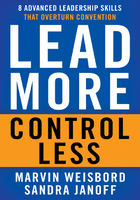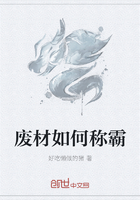Raising the Right Questions: Ethical Approaches to Five Important Cases
In this chapter, we will examine five ethical decisions made by public administrators on difficult issues. We will present the essential details concerning the decisions and the reasoning behind them. You will then be invited to reach your own conclusion on the case on the basis of your answers to the ethical questions introduced in Chapter 3.
The cases were chosen because they are interesting, and some are well-known. Because many of the people involved in these cases are high-ranking officials, it may at first appear that their decisions have little relevance to the issues that public administrators at lower levels face. But the level of the administrator's authority is not as significant as the principles that are relevant to his or her decision. Those principles apply at all levels. For example, in signing the Emancipation Proclamation, Abraham Lincoln made a momentous decision based upon the equality of all human beings. The affirmative action officer in a public agency is in a much less dramatic situation than Lincoln, but the concept of equality is an essential ingredient in the job, as well as for those within the organization whom he or she advises. In one of the cases we discuss, Robert Bork must choose between firing the special prosecutor in the Watergate affair and disobeying the president of the United States. Few public administrators receive their orders from presidents of the United States, but many may be asked to choose between following their own consciences and the orders of a supervisor.
Furthermore, even if one never reaches the lofty administrative levels of a surgeon general or chief health officer, one still might serve on the staff of such an official. Staff members often participate in decision making and are often invited to express their opinions. While higher rank in an organization entails greater power and professional prestige, official rank does not determine moral authority. That is determined by the power of one's moral convictions and one's ability to argue convincingly for them. As you examine the cases, you might consider how you would have advised the official who made the decision.
In examining the cases, it is important to understand fully the deciding administrators' reasoning. They had the responsibility to make the decision, and they had to make the decision in a timely manner. The cases are not intended as opportunities to second-guess people but to learn from the moral problems that they encountered.
It is also important to bear in mind that the cases are to be considered from an ethical point of view rather than from a legal point of view or from the standpoint of someone primarily concerned with following organizational policy. Ethical decisions are not always dictated by law and policy. For example, neither law nor policy may dictate exactly how a manager allocates money under his or her authority, but some uses may be ethically better than others. Furthermore, sometimes policy and even law are unethical, as the history of the Nazi party demonstrates.
THE TUSKEGEE SYPHILIS STUDY
In 1928, the United States Public Health Service (PHS), together with the private Rosenwald Fund, attempted, with public support, to identify and treat African Americans who had syphilis (Jones 1981). Subjects in the study voluntarily submitted to tests to determine whether they had the disease and were given free general medical examinations and other health benefits. The subjects who had contracted the disease expected to receive treatment for it.
The study also provided benefits to Tuskegee Institute, a traditionally African American institute of higher education, which assisted in the project. Tuskegee was given needed money, training for interns, and jobs for nurses.
In the 1930s the Rosenwald Fund withdrew its support, so the program was in jeopardy. Most importantly, the treatment phase had not been implemented. Without support from Rosenwald, the original study could not continue. But Dr. Taliaferro Clark, one of the doctors heading the study, found a way to continue funding from the PHS and to find additional support from Macon County, Alabama, by conducting a new, more limited study. Without informing the African American subjects, the study, whose original intent was to cure the disease, was converted into a study of the effect of untreated syphilis on African American men.
Although Tuskegee Institute eventually withdrew its support for the study, the reasons why the new study appealed to any of the agencies supporting it are unclear. The African American subjects who had tested positive in the original study were included in the new one but were not told that they had the disease. The PHS used extraordinary measures to prevent the subjects from discovering that they were sick, including the exemption of otherwise required syphilis examinations by the United States Army. Furthermore, the PHS worked with local health officials to ensure that the subjects were denied treatment for the disease.
Burial costs were included among the benefits for subjects.
Public and congressional pressure ended the study in 1972. In attempting to justify the program, one of the PHS administrators involved in the study maintained that the subjects were not patients but subjects and were "clinical material, not sick people," and their status did not warrant ethical debate. (Jones 1981, 179)
This case brings up a number of ethical issues and involves several ethical decisions. These decisions are "ethical" in that they were concerned with ethical matters, but they were obviously not all ethical in the sense in which "ethical" suggests "ethically correct." On the contrary, some of the decisions were monstrously unethical. Nevertheless, we will consider the ethical arguments that might be given in their favor, even if the arguments are extremely weak.
The argument for the original study was humanitarian. It was intended to identify people with syphilis and cure them. But when funds became scarce, the study was converted into something quite different because of the fear that the study would have to be abandoned for lack of funds. As a result, the medical research would be halted, the benefits to Tuskegee Institute would cease, and the scholars conducting the study would be removed from their positions.
Under the new plan, the subjects of the study would continue to receive medical examinations and treatment, but with the exception of treatment for syphilis. It could be argued that they also benefited from the newly altered study. Although they were not cured of their syphilis, it could be argued that the study did not really deprive them of any medical treatment that they would have received if the study had not been conducted. If there had been no study to begin with, they would not have known that they had the disease, anyway.
There is at least one possible factual error in the above argument. If the subjects had not been using the study as a medical clinic for other ailments, they might have sought treatment from other medical sources. The subjects thus would have discovered that they had the disease. Furthermore, rather than merely providing medical treatment and thus dissuading use of other medical sources, the study actively prevented other health agencies from diagnosing and treating the subjects.
But what would we say of the argument even if we ignore that possible factual error? Let us consider the questions on our ethical questions list, composed in Chapter 3 and adapted to this case.
Teleology:
What are the consequences of continuing the study in its new form?
What are the long-term effects for both the subjects of the study and for those who benefit from the new information concerning the effects of untreated syphilis on African Americans?
Who could benefit from such a study?
Does the newly reformed study promote the greatest happiness, when all factors, including the benefits to those conducting the study, are considered?
Deontology:
What principle applies in this case?
Consider the following possibilities: Nothing should be done to prevent the search for scientific knowledge; subjects of scientific studies are not patients and should not be treated as such; benefits to research teams should be considered more important than consideration of subjects; researchers should not lie to subjects; a prior agreement should not be altered without informed consent of all parties; human life should not be sacrificed. Are there other principles that you would include? Would a combination of principles be considered most appropriate in this case? If so, what are they?
Can the principle that you chose be applied consistently in this case and in all similar cases?
Once you have answered the previous question, try to imagine other cases to see if your answer would also apply to them. If not, why not?
Can this principle be considered a possible universal principle of behavior?
Would there be any logical contradiction in making the principle or complex of principles a universal rule?
Which course of action best exemplifies the ideal of treating all people as ends in themselves?
Were the subjects treated as ends in themselves? (Consider, for example, the statement from the administrator suggesting that the subjects were not patients but merely subjects and "clinical material, not sick people.") Might the researchers have used race as an excuse to regard the subjects as something less than ends in themselves? Were the researchers and medical personnel considered ends in themselves?
Which course of action best exemplifies and most fully promotes the ideal of a society of free, responsible people whose ends promote each other rather than conflict with each other?
Were the subjects treated as members of such a society? But was their mistreatment justified by the project of building such a society? Did this project, even to the extent that it succeeded, help build such a society?
Intuitionism:
What does my conscience tell me about this?
If you had been a researcher in this study, would your conscience have bothered you? Some of the researchers and organizers of the study apparently were not bothered by their consciences. Does their lack of a conscience on the matter offend me?
Do I feel good about this action?
Virtue theory:
What character traits does this action express?
Were the researchers noble seekers of scientific knowledge? Did they display callous disregard for the welfare of others? Were they so concerned about their own self-interest that ethical considerations did not matter to them?
What effect will this action have on my character?
If you had been one of the researchers, would the project have made you a better person?
What effect will this action have on the character of other people?
Is this the action of a person whose character I would admire?
It is not enough merely to acknowledge that the research project was monstrous and despicable. One must examine the full reasons why the study was so morally corrupt to be sure that those reasons are not overlooked in other, perhaps less blatant, cases. You might ask, for example, if there have been, in your professional experience, projects whose original worthy intent was replaced by another, less worthy, aim merely to keep the project going. Perhaps, in your experience, the benefits to the people conducting a project were considered more important than the publicly justified intent of the project. Perhaps you have encountered cases in which people, either within an organization or outside of the organization, have been treated as means rather than as ends. Do you recognize any of the ethical problems in the study in any professional experience, including the projects and activities in which you are currently involved?
While one might dismiss this case as a matter of the systematic prejudice of another age, one must recognize that every age, including the present, has its questionable but insufficiently questioned assumptions. But perhaps more importantly, the case does not merely express the biases of a particular era. Nor does it express abuse by an impersonal entity called "a study," "medical research," or even merely "government." The case expresses bias and abuse rendered by flesh-and-blood people working as public administrators.
ARE LEAKY CONDOMS BETTER THAN NONE?
When Dr. Joycelyn Elders was Director of the Arkansas Department of Public Health, she strongly supported the distribution of condoms to high school students as a means of preventing venereal diseases and unwanted pregnancies (U.S. Congress 1993). The distribution plan appeared to be working well until December 1990, when an Arkansas high school clinic informed Dr. Elders that the condoms were breaking at an alarming rate. Although a small failure rate among condoms was considered acceptable and inevitable, the rate appeared to be higher than expected. Further evidence accumulated for the next year and a half. By June 1992, several additional complaints surfaced, including a report of three HIV-infected people who claimed that their condoms had failed repeatedly.
Throughout that period, Dr. Elders neither recalled any condoms nor issued any public warnings. She believed so strongly in the distribution program that she was very reluctant to do anything that would undermine confidence in either the program itself or condoms in general. Later, in explaining her inaction, she maintained that it was better that a very few young people use defective condoms than that all young people lose their trust in condoms and, perhaps, choose not to use them at all.
In June 1992, Dr. Elders sent a sample of the condoms in the distribution plan to the U.S. Food and Drug Administration (FDA) to test the validity of the complaints. After conducting tests, the FDA concluded that the failure rate was ten times above its limit, and that all condoms made by the manufacturer should be seized. Approximately one month later, the manufacturer voluntarily recalled the condoms.
Several ethical questions arise from this case. First, one might consider the matter of whether condoms should have been distributed at all, even if the failure rate had been within FDA limits. In defense of the program, one might argue that the net effect of the distribution was positive because, in the end, more good than harm would result. While some unwanted pregnancies would result and some venereal diseases, including AIDS, might be transmitted, more pregnancies and infections would occur without the distribution. We refer to this argument as the "net benefit argument."
The use of the net benefit argument introduces another moral issue. While the argument is ethically plausible, reasonable people in the state of Arkansas might not find it convincing. Some might argue that it would be wrong for the state to supply condoms unless there were no chance of failure because the use of a defective condom might encourage a student to feel secure in having sex, which the student might otherwise not have had, to his or her peril. Even if Dr. Elders considered the net benefit argument to be ethically convincing, one might still ask whether the state has the moral authority to impose its own ethical thinking on the society or on the particular student.
The most notable ethical issue is Dr. Elders' response to the discovery that there were unexpected condom failures. She withheld the information because she believed that it would discourage people from using condoms, and use of possibly defective condoms would have better consequences than unprotected sex. She, in effect, made a decision for both the population in general and for the individual condom user.
Several ethical issues emerge from her decision. One such issue is that of paternalism. Dr. Elders considered her decision to be in the best interests of the people of Arkansas, but she deprived them of the information necessary to make their own informed decisions. She decided for them. She may have been correct in her assumption that her decision was better than theirs would have been, but one must still consider whether she had the moral authority to take the decision out of their hands.
Secondly, in making her decision, she endangered individuals who, if properly informed, might have chosen to purchase condoms from a different manufacturer or abstain from risky behavior entirely. She may have been correct in her belief that few people would have made such choices, but those who would have may have been severely damaged by a choice that she, in effect, made for them.
A third issue is that of secrecy. Even if she were correct in her supposition that the people of Arkansas benefited from her decision, its effectiveness depended upon secrecy. As an officer of the government, she had a responsibility to carry out her duties honestly and openly. But honesty and openness in making this decision would have defeated the decision itself. Deception was an essential part of it.
We may now return to our list of moral questions to examine how they would apply in this case. This time, we will not consider all of the questions but will concentrate upon those most relevant to Dr. Elder's decision.
Teleology:
What are the consequences of my action?
What are the long-term effects of my action?
Does my action promote the greatest happiness?
These three questions may be taken as a group. In answering them, you should consider several factors, among others that you yourself may notice: Would the withholding of the information reduce venereal disease and unwanted pregnancy as effectively as Dr. Elders believed? Even if it did, would the deception set an unfortunate precedent that encourages secrecy in other policies as well? Would the society lose faith in the honesty of government if the deception was discovered? Would there be unfortunate consequences of a systematic attempt to conceal the deception?
Deontology:
What principle applies in this case?
Among the principles to be considered are the following: Should government make secret decisions that do not involve national security? Should government deprive citizens of information necessary to make intelligent decisions? Should government make decisions on behalf of the less wise members of the society at the expense of those who would make wise decisions with the proper information? Do the interests of the whole override the interests of the individual members of a society?
Which course of action best exemplifies the ideal of treating all people as ends in themselves?
Did Dr. Elders' decision to save people from their own, possibly bad, judgments treat people as ends in themselves? As rational beings? As complete human beings? Would providing people with the information to make their own decisions have better expressed the notion of people as ends in themselves? Would sacrificing the welfare of those individuals who would make proper informed decisions for the sake of the welfare of the majority violate the notion that people are valuable in themselves?
Which course of action best exemplifies and most fully promotes the ideal of a society of free, responsible people whose ends promote each other rather than conflict with each other?
Does Dr. Elders' decision conform to the notion of such a society by emphasizing the welfare of the society as a whole over the interests of the individuals who would make the best-informed choices? Does the decision conflict with the notion of a society of free, responsible people?
Intuitionism:
What does my conscience tell me about this?
Do I feel good about this action?
These two questions may be taken together: If you had made Dr. Elders' decision, would you feel good about it?
Virtue theory:
What character traits does this action express?
Does the action express benevolence because of Dr. Elders' concern for the welfare of the people of Arkansas? Does it express a lack of honesty? A lack of trust? A lack of trustworthiness?
What effect will this action have on my character?
If Dr. Elders' policy succeeded, would it tend to make her a less honest person? Would it strengthen a possible disrespect for the judgment of common people?
What effect will this action have on the character of other people?
Would such actions, if routinely taken by government, tend to make people more dependent upon government experts and less self-reliant?
Is this the action of a person whose character I would admire?
The case of Dr. Elders is especially important for public administrators to consider because the proper function of government is at the root of the issue. One's reaction to her decision expresses one's beliefs regarding the point at which legitimate actions by government become unwarranted paternalism.
MASSACRE OR BE MASSACRED
In 1974, President Richard Nixon resigned to avoid almost certain impeachment and conviction in the Watergate scandal (Moore and Sparrow 1990). Although he was never conclusively connected to the break-in itself, his own tape recordings proved that he participated in a massive coverup. Nixon might have been able to retain his office if the proof from the tapes had not been exposed. He might have saved his presidency if he could have kept the content of the tapes secret, even after their existence had been revealed.
The legality of Nixon's argument in favor of keeping the tapes secret is unclear. He might or might not have had a good legal case for withholding them. However, our concern is not with the legal issue or even with the ethics of Nixon's own actions; our concern is with the ethical decision of Robert Bork, the solicitor general who fired Special Prosecutor Archibald Cox at Nixon's request in his effort to hide the content of the tapes.
Cox insisted upon reviewing the tapes to determine if any illegality had occurred. Nixon refused to supply them on the basis of presidential confidentiality. Since Cox had been appointed by Attorney General Elliot Richardson, who himself had been appointed by the president, Nixon instructed Richardson to fire Cox. Richardson refused to comply and resigned as attorney general. The deputy attorney general, William Ruckelshaus, assumed the duties of the attorney general but also refused to fire Cox. Bork, the next in line, complied with the request to fire Cox.
Bork considered his position different from those of Richardson and Ruckelshaus in two ways that, in his opinion, morally exempted him from any moral imperative that they may have been under. First, Richardson and Ruckelshaus had promised the Senate not to fire Cox except under extraordinary circumstances, which did not hold in this case. Bork had made no such promise. Secondly, Bork did not consider his office of solicitor general to have the same moral responsibilities as that of attorney general. He considered the office of solicitor general to be more beholden to the president than to the general public, although he considered the reverse to be true of the attorney general. He therefore reasoned that it was constitutionally imperative that someone carry out the president's orders, and that he, as solicitor general, was the agent of the president required to implement the order. Even if he resigned, he argued, someone would have to fire Cox, or the president would be denied his powers under the United States Constitution. To deny those powers would fail not only the president, but also the American people, because the Constitution is designed on their behalf.
Bork evidently applied a different concept of public service to his official position from those of Richardson and Ruckelshaus. They were under the executive branch, but since they made promises to Congress, they also were in part under the authority—moral if not legal—of the legislative branch. Their ultimate allegiance was, technically, to the executive, but their de facto lines of moral and professional responsibility were unclear. Furthermore, the high level of the office that they occupied may be seen to imply responsibility directly to the people. Bork evidently understood his position to be more that of a bureaucrat, and, as such, an agent of the will of his ultimate superior, the president of the United States. He appears to have considered Richardson and Ruckelshaus, on the basis of the ambiguity of their ultimate allegiances and the high level of their authority, to be more justified in asserting their own moral judgment than he was; he considered himself a presidential agent without moral autonomy.
We have simplified the case by omitting other factors that undoubtedly influenced the entire Watergate affair. Those factors include, among others, political beliefs, career concerns, and personal loyalties. Nevertheless, let us suppose that the facts are as Bork apparently understood them, and apply our list of moral questions to his decision.
Teleology:
What are the consequences of my action?
What are the long-term effects of my action?
Does my action promote the greatest happiness?
These questions are very difficult to answer, because the long-term effects of the possible courses of action open to Bork are unclear. Honoring the power of the presidency, as Bork did, might, in the long-term history of the country, cause more good than harm by allowing future presidents to act for more positive purposes. On the other hand, disobedience to Nixon might have ultimately produced more beneficial consequences. A decision to disobey might have resulted in a more expeditious and less painful end to the Watergate affair without setting any negative precedent that would deny future presidents the legitimate power of their office. One could speculate on the ultimate results, but it is doubtful that any definitive answers will emerge.
Deontology:
What principle applies in this case?
Is the foremost principle, as Bork seemed to assume, "A public administrator must obey the lines of authority"? Would another principle be more germane, such as "A public administrator should act morally on behalf of the public"?
Can the principle that you chose be applied consistently in this case and in all similar cases?
Can the principle be considered a possible universal principle of behavior?
Bork may be understood to have considered these two questions. He apparently reasoned that if all public officials in his position were to refuse the president's request, the president could not function with the full authority assigned to him by the Constitution. Do you agree with that reasoning?
Which course of action best exemplifies the ideal of treating all people as ends in themselves?
This question has special importance not only to this case, but to one's concept of the function of the public administrator. In regarding himself, a public administrator, as a full agent of the will of the president and as acting without independent, autonomous moral authority, does Bork suggest that the public administrator is a mere means, and not a morally responsible individual who could be regarded as an end in himself? The answer to this question has profound implications for the profession of public administration.
Which course of action best exemplifies and most fully promotes the ideal of a society of free, responsible people whose ends promote each other rather than conflict with each other?
The case is one of conflict to begin with. The president, the congress, the special prosecutor, the attorney general, the deputy attorney general, and the solicitor general are all in conflict. Which course of action would set a precedent that would best avoid such conflicts in the future? If, for example, the president came to naturally expect that public administrators answered to a moral authority rather than only to presidential authority, would the president be less likely to give morally questionable orders?
Intuitionism:
What does my conscience tell me about this?
Do I feel good about this action?
If you were in Bork's position, where would your intuitions guide you?
Virtue theory:
What character traits does this action express?
What effect will this action have on my character?
What effect will this action have on the character of other people?
Does Bork's notion that, as a public administrator, he has no moral authority to disobey the president in this case have the effect of weakening the moral character of the public administrator? Is it important that a public administrator exercise moral character in his or her profession?
Is this the action of a person whose character I would admire?
Is Bork's refusal to impose his own moral values on the society by disobeying the president an admirably disciplined act? On the other hand, is it an avoidance of moral responsibility?
The most fundamental question arising for the public administrator from this case is that of his or her moral authority. Does the public administrator have the authority to apply his or her moral judgment, or must the public administrator remain morally neutral? If the public administrator can exercise moral authority, what are its limits? Can that moral authority interfere with constitutional powers granted to an elected official?
OPTIMISTIC PROJECTION OR OPPORTUNISTIC DECEPTION?
New York City had a serious heroin addiction problem when Gordon Chase was appointed head of the city's Health Services Administration in 1969 (Moore and Sparrow 1990). According to some estimates, 200,000 New Yorkers were addicted, and the city recognized a responsibility—not only to the addicts themselves, but also to victims of heroin-related crime—to reduce this number. Both the city and private agencies provided assistance. Chase believed that the best hope lay in a project intended to wean addicts off heroin by means of methadone treatment. The treatment was controversial at the time, as it still is, because its effectiveness had not been proven. Furthermore, there was a legitimate concern that the treatment would only convert heroin addicts into methadone addicts. Nevertheless, Chase firmly believed in the program and sought to implement it. But he needed support from taxpayers, the political establishment, private hospitals, and private donors.
Chase proposed to have 15,600 addicts treated under the program within one year. He considered the figure to be "on the optimistic side" and perhaps "downright unrealistic" (42-43). His reason for publicizing the figure was not a fatuous hope that it might be accurate, but a careful political strategy. He feared that a more realistic, but smaller, figure would garner less support. If the original projections contained only a few addicts, the public would infer that the project was experimental and would have little confidence in its likely success. Furthermore, he believed that the large optimistic figure would encourage the bureaucratic structure to take the project more seriously and behave in a less obstructionist manner.
Chase's strategy appears to have worked as planned. The 15,600 figure proved unattainable, but it fulfilled its intended purposes. The program was instituted in 1970, and by 1971, 2,000 addicts were being treated. The figure grew to 11,000 by 1973. Although figures establishing the success of the program are difficult to interpret, they suggest that heroin use and crime related to it declined significantly as a result of the program.
Chase's optimistic projections bring up ethical questions. His intent in publicizing the projections was not to truly inform the public but to manipulate them, albeit for a good—and apparently successful—cause. There are, in addition to the factors that Chase himself mentioned, other considerations that might be introduced on his behalf. First, one might ask whether some manipulation of the public might be acceptable to help them reach the correct conclusion on an issue that they, for lack of expertise, do not understand. Few private citizens knew the issues as well as Chase himself did, and any attempt to enlighten them would be fruitless. Sometimes it may be acceptable to protect people from their own ignorance. For example, many people would be horrified if they knew of the amounts of probably harmless rat hair and evidence of rat feces that are considered acceptable in some consumer products. A little ignorance might be a helpful thing.
Secondly, it might be argued that Chase was not truly deceptive. The public expects inflated figures from its public officials and adjusts its opinions accordingly. Few people believe the dollar amounts projected to build a new stadium or highway; they know that there will be cost overruns and suspect that, even without them, the stated figures are overly optimistic ploys. If accurate figures are presented, the public will assume that they are underinflated, so the inaccurate figures might represent a truer picture. Similarly, the citizens of New York and its political powers would likely assume that Chase's figures were off. If everyone is expecting a deception, it isn't a deception any more.
Although Chase was a high official, public administrators at lower levels are often confronted with similarly "honest deceptions." When making out a projected budget, a manager might overstate his or her department's needs to seek a greater portion of the available funds. If a manager projects a scrupulously accurate budget, his or her department is at a competitive disadvantage with others who play by the real rules rather than idealistic ones. At the end of a fiscal year, a manager is often considered an incompetent boob if he or she cannot rationalize ways to use leftover funds. Similarly, when evaluating personnel, one must be sure to rate average employees as excellent rather than average, because in the accepted language of evaluation, "average" means "a good candidate for dismissal."
With all factors taken into consideration, we may return to our list of ethical questions.
Teleology:
What are the consequences of my action?
What are the long-term effects of my action?
Does my action promote the greatest happiness?
There were evidently beneficial effects of Chase's actions. The heroin problem was not solved, but statistics appear to support the effectiveness of the program. But did Chase set a dangerous precedent or reinforce a dangerous policy of "justifiable" deception?
Deontology:
What principle applies in this case?
The principle may be one of many: Never deceive the public; minor, strategic deception is acceptable for the public welfare; people are more important than the truth; a lie is not a lie when people expect it.
Can this principle be applied consistently in this case and in all similar cases?
In what respect are the cases to which you would apply your principle similar to this one?
Can this principle be considered as a possible universal principle of behavior?
Should one always tell the truth to the public, even if they are unable to properly understand it? If one always inflates figures under the assumption that the public expects them to be inflated, will a spiral of greater inflation and expectation result?
Which course of action best exemplifies the ideal of treating all people as ends in themselves?
Do Chase's actions treat the citizens as ends in themselves? Did he treat the addicts as ends in themselves?
Which course of action best exemplifies and most fully promotes the ideal of a society of free, responsible people whose ends promote each other rather than conflict with each other?
Does the ideal society elevate honesty over treatment of the needy, or the reverse?
Intuitionism:
What does my conscience tell me about this?
Do I feel good about this action?
If you were Chase, how would you feel about your actions?
Virtue theory:
What character traits does this action express?
What effect will this action have on my character?
What effect will this action have on the character of other people?
Is this the action of a person whose character I would admire?
Which character trait is more admirable, complete frankness or compassion?
In some ways, Chase may be compared to Elders. They both acted deceptively for the public good. But they differed in some ways also. Elders chose not to warn the public about the condoms, and that decision virtually ensured that some people would suffer unwanted pregnancies or venereal diseases. Chase endangered taxpayer pocketbooks and city budgets more than their bodies. Also, Elders may have been said to hide a complete fact, while Chase may be described as exaggerating. Are there any other differences that you consider relevant?
Chase's actions call our attention to some fine distinctions that public administrators might be forced to make among the following: lying; exaggerating; justifiably deceiving; misleading but not deceiving; and overstating but not deceiving. In an ideal world, such distinctions may not be necessary or even contemplated, but public administrators do not live in an ideal world. Nonetheless, should they behave as if they do?
THE FBI LOOKS IT UP IN THE LIBRARY
Two agents of the Federal Bureau of Investigation (FBI) were investigating a series of art thefts that, they believed, were committed by amateur art thieves who might have recently acquired some knowledge of art by checking out books from the local public library (Vocino and Tyler 1996). In the process of one of their thefts, they severely beat an elderly woman and left her comatose. The FBI agents went to the library to find the names of people who had recently checked out books on art.
The agents entered the library at the start of a holiday weekend, when the director was on vacation. They asked the reference librarian to provide them information on those who had borrowed art books, but he refused on the basis of the library's policy of keeping such information confidential. He knew that the library director stressed such confidentiality in general, but the director was unable to be contacted for advice in this case. He suggested that the agents wait until the director returned from his vacation, but the agents claimed that they needed the information immediately if there was any chance of finding the criminals. The agents' emphasis on the brutality of the crime and their status as agents of the federal government eventually induced the librarian to provide the information. He later said that, if he had had the time to think about his decision, he would have decided otherwise.
Let us consult our list of ethical questions to determine what the librarian should have done. This time, however, we will supply only the list without hints concerning how the questions may be applied to this case. At this point, your own insights should be better than any hints that we might supply.
Teleology:
What are the consequences of my action?
What are the long-term effects of my action?
Does my action promote the greatest happiness?
Deontology:
What principle applies in this case?
Can this principle be applied consistently in this case and in all similar cases?
Can this principle be considered as a possible universal principle of behavior?
Which course of action best exemplifies the ideal of treating all people as ends in themselves?
Which course of action best exemplifies and most fully promotes the ideal of a society of free, responsible people whose ends promote each other rather than conflict with each other?
Intuitionism:
What does my conscience tell me about this?
Do I feel good about this action?
Virtue theory:
What character traits does this action express?
What effect will this action have on my character?
What effect will this action have on the character of other people?
Is this the action of a person whose character I would admire?
Which of these questions do you consider most appropriate to the case? How would you answer them?
In reviewing the cases, we might ask whether any of the people making the decisions would have acted differently if they had used our list of ethical questions in their deliberations. One might suppose that, if they had had no moral scruples whatsoever, they would have ignored the answers to those questions even if they had considered them. But we should not be so quick to dismiss all of them as amoral. Some may have been trying to do their best but lacked a systematic, developed method for making ethical decisions. Such administrators might have benefited from careful consideration of the questions. But even if some of the decision makers were indeed initially amoral, we might still hope that consideration of the questions might have awakened a latent moral sense within them.
A mere strong moral sense or "moral compass" may be enough to direct some decision makers to a good decision. Some people simply seem to know what is right, even without deep thinking. Such people may not need to contemplate the list of moral questions that we have devised. Nevertheless, even those "intuitive" moralists would benefit by examining the questions and providing explicit answers to them.
As good as the actions to which their moral sense inclines them may be, if they are good administrators, they will have to explain the rationale behind their decisions to others who do not accept intuition alone as an answer. Such explanations not only defend the agent from charges of unethical behavior, but also may ethically educate the questioner. Furthermore, in answering the questions, even after the decision has been made, one might learn something important about the inner ethical conceptual structure of one's own mind.















